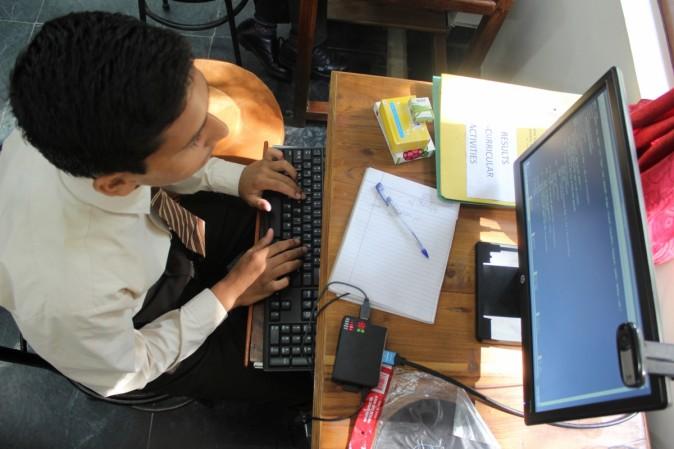An uninteresting computer course in an Indian school and visits to relatives' houses across the country could mean anything for an Indian-American teenager. For most, it would be a forgottable experience.
But not for Sonia Uppal, now a high school student from Los Altos, a city in Silicon Valley in the state of California. Instead of just choosing to forget her experience, this coder has set up a project in Kasauli, Himachal Pradesh, called the Pi a la Code, to teach "underprivileged teens in rural India how to code using the Raspberry Pi".
And now, she is approaching the HP government to help scale up the project so more children in rural areas can learn programming and boost India's IT services industry, which has been valued by Nasscom at $140 billion.
How it all started
Sonia was born and brought up in the US. However, when Sonia's father was transferred to Bangalore in 2009, she relocated, and attended The International School of Bangalore for two and a half years before returning home in late 2011.
It was in this school that she had her first brush with a computer course, which she told IBTimes India over email she found "unintuitive and not fun".
However, when she moved back to California, she "took part in a mobile app design competition in middle school and my team built iCivilWar, an educational game," she said.
The experience of using "immersive tools to build software people loved to learn with" excited her, and she decided to give computer science another shot.
The next year, she came across Raspberry Pi, a tiny affordable computer for kids and first-timers that comes with some accessories, but needs to be hooked up to a monitor and input devices — keyboard and mouse — to function. And the seeds of Pi a la Code were sown.
The project
At the time her father was stationed in India, Sonia had travelled all across the country, visiting relatives. One such visit was to Chandigarh, where she was told about her grandmother's native place, Kasauli. Later, when planning a location for Pi a la Code, this was the place Sonia chose to begin her project in July 2013.
The initial idea was to start from Bangalore, but Sonia reasoned that students there already have access to computers. "I thought I could reach more students by trying this programme in a place that did not have these opportunities," she said.
The infrastructure
"The idea took shape when I contacted the village school back in Kasauli and convinced the school officials their students would benefit from learning computer science," said Sonia.
In her own words, implementing the programme was daunting at first because of all the challenges — funding for the Pi and accessories, learning Python on the Pi, convincing her parents this was a useful project and finding others who could guide her.
This was where Sonia's association with programmes like Breakout Mentors and Girls Who Code helped. That she was chosen as a fellow for the prestigious SHE++ programme of Stanford University pushed things along further.
"I then raised money through crowdfunding, developed a Python curriculum by hand, made 10 Pi teaching sets, and flew out to Kasauli for a 10-day trip my sophomore year. I thought there would be language and other barriers, but besides Internet connectivity problems, we didn't have any major issues," Sonia said.

Future plans
Sonia's efforts earned her a mention on the official blog of Raspberry Pi.
Sonia says she plans to extend the project beyond Kasauli. "I have approached the Himachal Pradesh government's IT Department for funding to see if they would like to start a Raspberry Pi programming curriculum in more schools in HP. I know other, more advanced states like Kerala are already trying this, and this can easily be expanded to other states. Since each Pi teaching set is quite inexpensive, many kids can be taught for a small amount of funding," she explained.
"This project has shown me that with enough enthusiasm from schools, a small amount of funding, and training/guidance, each school can be self-sufficient in implementing the Raspberry Pi curriculum. I will commit to sharing and training the next set of people who want to take it forward, starting with other schools in HP if the government provides the backing."















